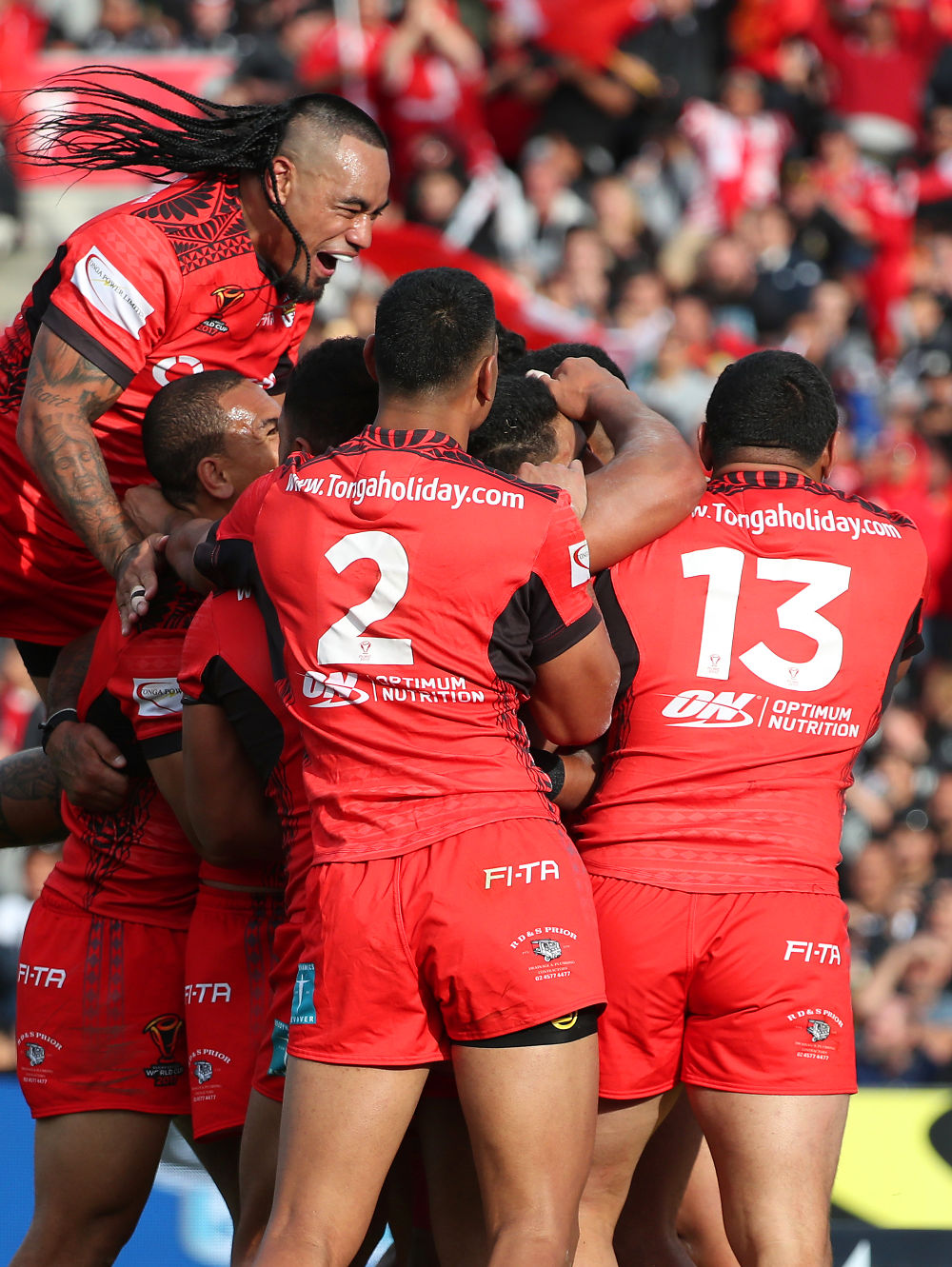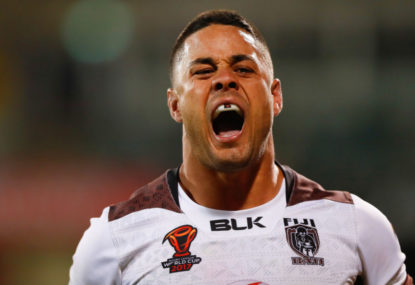Do some asylums need insurrections from the lunatics?
The 2017 Rugby League World Cup didn’t make as much money as the International Federation needed it to. But at least, in Fiji and Tonga, it gave the sport a bit of a roadmap to the future.
That road is now crumbling somewhat.
Fiji players are threatening to strike over missing prizemoney that the FNRL denies it owes them (they say the World Cup is supposed to pay it). The players are agitating for a change at board level, even though just about all of them live overseas.
Tonga and Samoa have been drawn to play at Campbelltown – where they use to meet at the start of the century in front of crowds numbering in the hundreds – when they are commercially powerful entities in New Zealand.
Neither of them are too keen. Even though tickets are already on sale for the ‘Pacific Tests’, it’s not known whether they’ve even signed the participation agreements.
Born of discord, forever condemned to wallow in it. That’s rugby league. Perhaps the first ‘broken time’ payment in 1895 condemned us to forever repeat the same behaviour and never get anywhere.

Tonga players celebrate at the 2017 Rugby League World Cup (NRLPhotos/Fional Goodall)
Now, let’s back up a bit. NGOs and governments have trouble dealing with the developing world, so it’s no surprises an under-resourced and unfocused sport like rugby league does, too.
When a semi-amateur body based in the developing world has to handle a group of full-time professional athletes from the first world for a few weeks every year – and pay them – there is bound to be conflict. For the officials, this is a windfall and for the players, it’s slumming it.
While you can never guarantee to solve these problems quickly, a more powerful RLIF would help.
World Rugby can afford to send consultants to different countries to figure out what they need and fund them to do specific things. The RLIF can afford one fulltime employee.
It’s a vicious circle when the RLIF can’t make enough money from events to keep everyone on the same page, then the lack of them being on the same page means it makes even less money next time.
And some people don’t think the RLIF itself is terribly responsible with money, having appointed its own chairman as it’s next CEO when plenty of people within the game, on the periphery of it, and outside it might have been good candidates.
It’s this part of the column where I normally come up with a plausible solution for the hurdles thrown up in the first part – but I have to admit, I’m struggling. It all looks like the same old 123-year-old rabbit hole.
Intervention from a fairy god-person like the NRL is what’s needed. Has anyone suggested Barry and Eddie Hearn get involved in international footy instead of Super League? Big crowds, huge ratings, million-dollar athletes yet not a single umbrella sponsor.
But rather than try a practical go-do solution, it seems the game’s only choice is to experiment with different philosophies.
[latest_videos_strip category=”rugby-league” name=”League”]
In the situations described above, we could side with the players, the national leagues or the existing RLIF structures and let the other parties sort it out among themselves.
For many years, James Segeyaro did not play for Papua New Guinea because he disagreed with the administration. When it changed, he came back.
Perhaps the best approach for the time being is to put a calendar in place and leave it up to countries to field whatever team it can. If players don’t want to get on the plane to Denver, for instance, because their clubs encourage them to pretend they have a hamstring injury, replace them with someone who can travel.
If countries do not field teams, they are punished in the same way that small European nations have been demoted from RLEF competition for forfeiture.
For instance, if New Zealand pull out of the Denver Test because they don’t want a fight with NRL clubs, make them qualify for the next World Cup.
And in the case of Tonga and Samoa, why should the governing body in Australia decide where they should play and then start selling tickets? If they can make more for their federations and their players at another venue, they should have the right to do so.
The dispute between the FNRL and the Bati players is between them. Fiji’s job is to field a team. If they can’t reach an agreement with their players and they have a side of domestic players who are heavily beaten, so be it.
Consensus works when you have a small, defined community. International rugby league may not be thriving but it increasingly involves new players, administrators, media, entrepreneurs. It’s outgrown consensus. It needs authority and order.
In Suva, whether the lunatics should run the asylum, it will be decided by the people of Fiji and those who vote in the league’s elections.






























































































